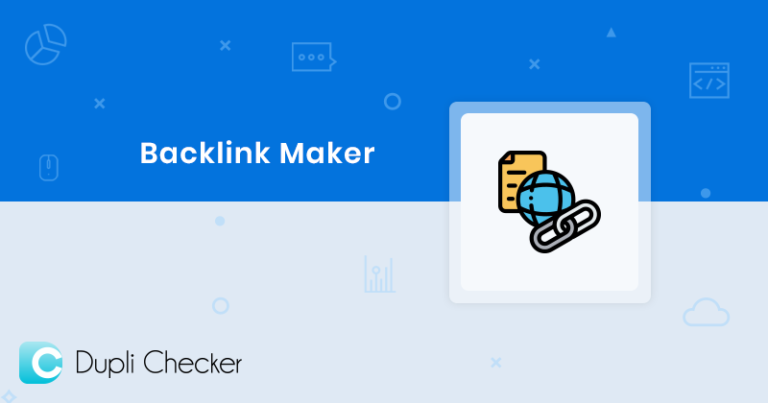How to Make the Most of a Class C IP Checker: A Comprehensive Guide
Curious about Class C IP Checkers? Discover how they work, why they matter in SEO, and how you can use them to analyze IP diversity and boost website performance.
Introduction
Ever wondered how a single tool could level up your website’s SEO game? Meet the Class C IP Checker, a nifty resource for web admins and marketers alike. Whether you’re running a network of websites or just one, this tool helps you dive deep into the IP landscape of your hosting setup. From ensuring IP diversity to dodging potential SEO penalties, a Class C IP Checker is a must-have for anyone serious about web optimization.
In this guide, we’ll break down everything you need to know about Class C IP addresses, why they’re important, and how to use a checker effectively. Ready to dig in? Let’s go!
What Is a Class C IP Address?
The ABCs of IP Addresses
Every device connected to the internet has an IP (Internet Protocol) address. Think of it as the digital version of a home address—it tells servers where to send information. IP addresses are divided into classes (A, B, C, etc.) based on their range and use.
A Class C IP address is particularly important in web hosting. It typically covers a block of 256 addresses (e.g., 192.168.0.0 to 192.168.0.255). Websites hosted on the same Class C range might share common infrastructure, which search engines can detect.
Why Does It Matter for SEO?
Google and other search engines prioritize diversity in linking domains. If multiple backlinks to your site come from the same Class C IP, it can raise a red flag. The search engine might think you’re gaming the system with private blog networks (PBNs) or manipulating rankings.\
Also read : google cache checker
What Does a Class C IP Checker Do?
A Class C IP Checker identifies the IP addresses associated with a set of websites. It pinpoints whether multiple sites are hosted on the same Class C block. Why is this useful? Here are some key benefits:
- Detect SEO risks: Avoid penalties from search engines by identifying unnatural link-building patterns.
- Audit PBNs: Ensure your private blog network has proper IP diversity.
- Evaluate hosting setups: Check whether your hosting provider is giving you unique IPs or crowding your sites on the same block.
How to Use a Class C IP Checker
Using a Class C IP Checker is as easy as pie. Here’s a simple step-by-step guide:
- Choose a reliable tool: Popular options include online Class C IP Checkers like WhatsMyDNS, IPvoid, or hosting-specific tools.
- Enter the domains: Paste the domain names of the websites you want to check.
- Run the scan: Hit “Check” or “Analyze,” and let the tool work its magic.
- Review the results: The checker will display each site’s IP and highlight overlapping Class C blocks.
Tips for Best Results
- Use a checker that supports bulk domain analysis if you’re auditing a large network.
- Periodically run checks, especially after acquiring new domains or changing hosting providers.
Common Scenarios Where Class C IP Checkers Shine
1. Private Blog Networks (PBNs)
Running a PBN? Then you know that keeping your network undetectable is critical. Class C IP Checkers can help you:
- Spot duplicate IPs across your network.
- Avoid linking too many domains from the same block, which screams “manipulation” to search engines.
2. Link Building Audits
Backlinks are gold in the SEO world—but only if they’re natural. By analyzing the IPs behind your backlinks, you can ensure they’re coming from diverse Class C ranges.
3. Hosting Performance Checks
Shared hosting often clusters websites on the same Class C IP block. While this is common, too much overlap can lead to SEO woes. Use a checker to evaluate your hosting provider and request unique IPs if needed.
FAQs About Class C IP Checkers
What’s the difference between Class C IPs and other classes?
Class C IPs are primarily used for small networks or groups of websites, while Class A and B cover larger ranges. Class C is more relevant to SEO because it’s commonly associated with shared hosting.
Are Class C IP Checkers free?
Many tools offer free checks for small batches of domains. However, premium tools may provide additional features like bulk analysis or detailed reporting.
Can Class C IPs impact website speed?
Not directly. But overcrowded hosting environments (often detected through shared Class C IPs) can slow down your site.
Is it bad if my sites share a Class C IP?
Not necessarily! It’s only problematic if search engines detect unnatural patterns, like excessive backlinks from the same block.
Best Practices for Managing Class C IPs
To keep your SEO efforts squeaky clean, follow these best practices:
- Spread your domains: Host websites across different Class C blocks.
- Use multiple hosting providers: This adds an extra layer of IP diversity.
- Audit regularly: Make IP checks a routine part of your SEO strategy.
- Avoid linking too much: Even if your sites are on different IPs, excessive interlinking can raise suspicions.
Wrapping It All Up
The Class C IP Checker isn’t just a technical tool—it’s an SEO lifesaver! From auditing your backlinks to managing hosting configurations, this little gadget has your back. By understanding how Class C IPs work and leveraging a checker effectively, you can stay ahead of search engine algorithms and keep your rankings solid.
So, don’t wait! Dive into your IP setup today and ensure your SEO strategy is as sharp as it can be. After all, when it comes to the internet, every little detail matters.







One Comment